Sub/Merge by Omgivning and Studio MLA
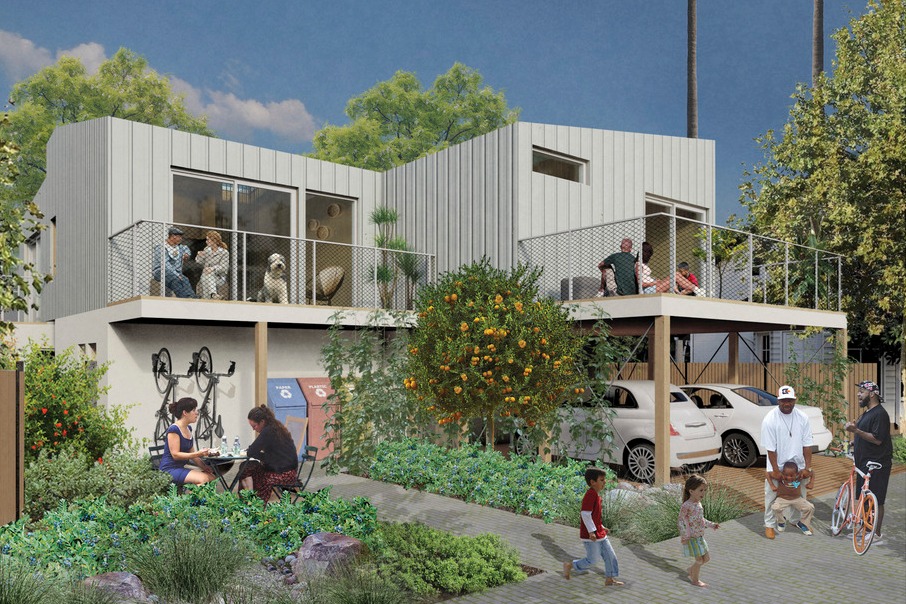
Omgivning and Studio MLA teamed up to win second place in the Subdivision category of the Low-Rise design competition.
Sub / Merge : Subdivisions that Connect
Consideration for sensitive densification in Los Angeles as a
response to the city's ongoing housing shortage should focus on the
organic evolution of neighborhoods toward a more sustainable
community. The gentrification that so commonly follows
densification has potential to be combatted through strategies of
retention of existing residents, and more inclusive and affordable
models of ownership. Sub/Merge is a model for a versatile framework
that seeks to subdivide existing single family residential parcels
into smaller lots that afford a greater range of family types with
varying income levels the possibility of owning their own home, while
retaining the scale and character of the existing neighborhood. This
model addresses the fabric of Los Angeles’ single-family residential
communities, from Vermont Square to Atwater Village to Van Nuys,
while allowing for flexibility that serves the specific needs of each
neighborhood.
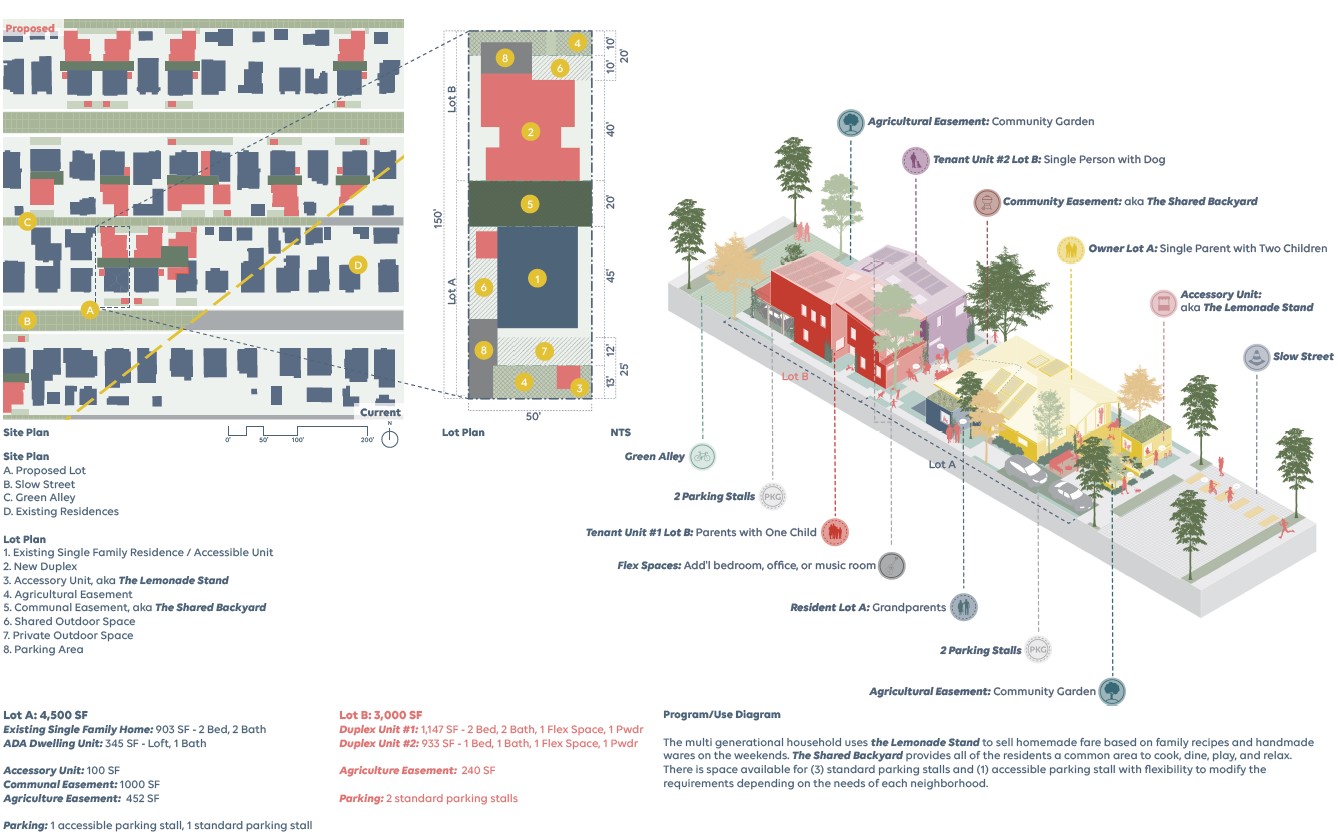
Subdivision Strategy
Sub/Merge subdivides a typical 7,500 sf lot into components that
allow up to three new dwelling units and new community spaces, as
well as maintaining the existing single family home:
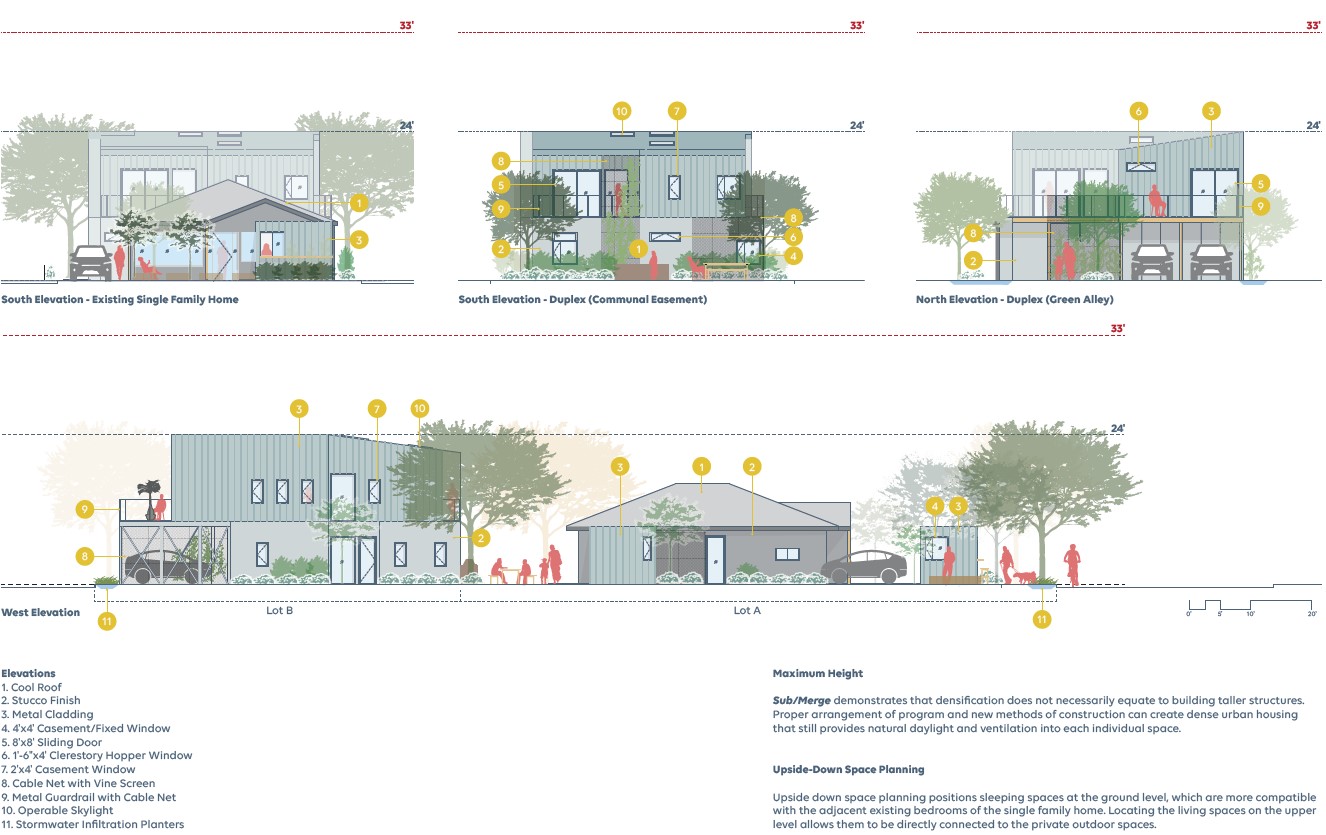
Lot A includes the existing single family home on a reduced lot
size of approximately 3,500 sf that preserves the neighborhood
character and scale at the street frontage. The existing house can
be reconfigured with a small addition to allow an additional ADA
Dwelling Unit to encourage multi-generational living. Underutilized
front yard space is activated as the primary private outdoor space
for the single family home, and a small Accessory Unit, aka The
Lemonade Stand, that can function as a home office or allow for a
small-scale entrepreneurial opportunity to sell homemade goods,
encouraging community support and connection.
Lot B is a new 2,500 sf subdivided parcel at the rear of the lot that offers potential for private ownership or development by a Community Land Trust (CLT). A New Duplex allows for mindful densification with massing that is compatible with the existing context. Careful consideration of indoor-outdoor conditions and relationships between multiple households drive the upside-down space planning that locates living spaces on the upper level and private spaces at the lower level.
The Communal Easement, aka The Shared Backyard, provides a common space for planned and spontaneous interactions, enhancing the connection for all the residents of Lot A and B.
Agricultural Easements at the street and alley allow for portions
of the parcel to be managed and maintained by a CLT for urban
agriculture or community gardens to create productive landscapes
to serve as a buffer between the public way and private spaces.
The public way can be treated as Green Alleys and Slow Streets to
create protected lanes and additional open space for pedestrians to
run, bike or scoot through their neighborhood.
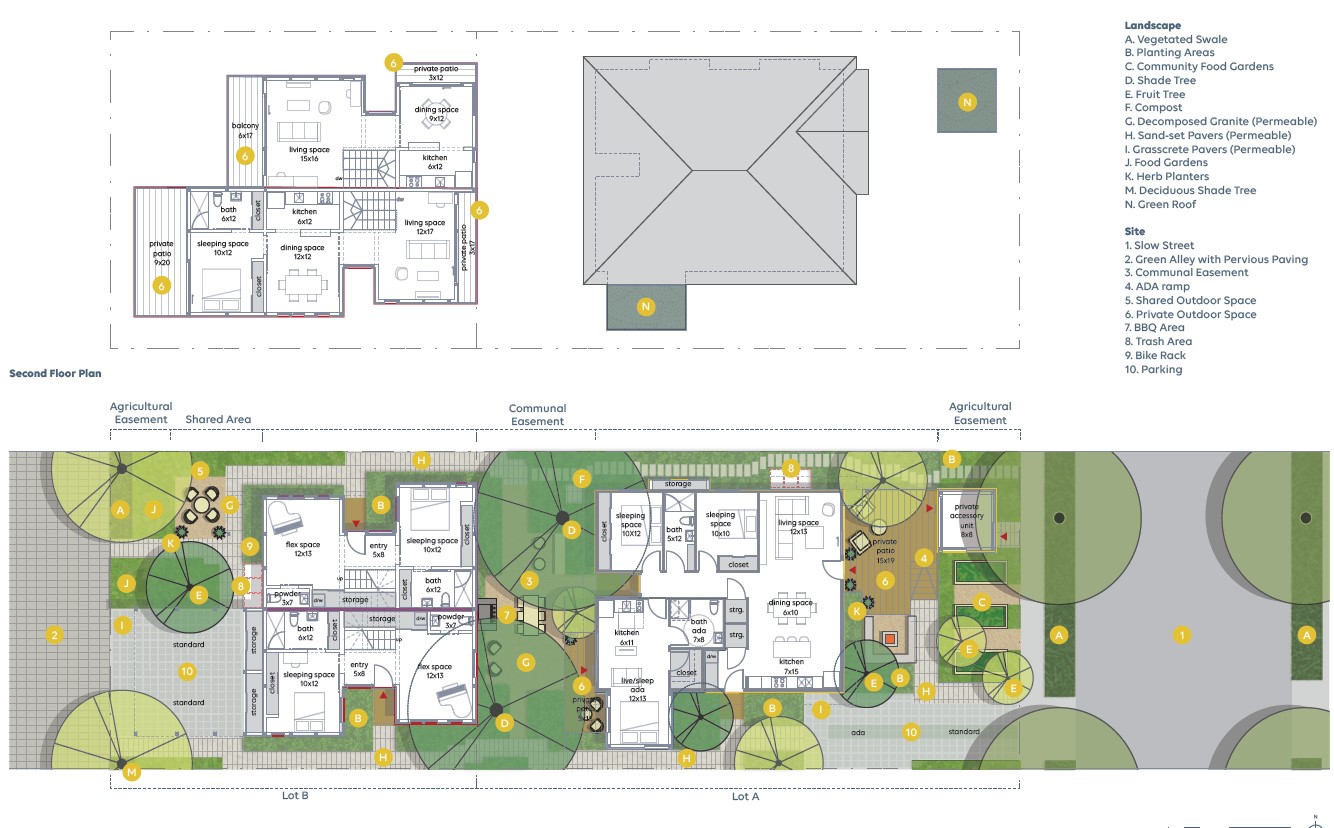
Sustainable Communities
Sub/Merge allows densification to occur organically, across separate parcels on each block. Each subdivided parcel allows for a range of flexibility in use over time for various needs throughout life and evolving family composition. This adaptability encourages multi-generational living, which helps maintain the culture, ideals and family values currently present among the many communities of Los Angeles.
Comprehensive personal wellness remains a guiding principle
for growth. This framework promotes a balance of private
and social spaces, both indoor and outdoor, for residents to
work, create, play, and relax. Density is increased without
compromising for adequate space, light and airflow throughout
the property, creating a healthy environment and connection to
nature.
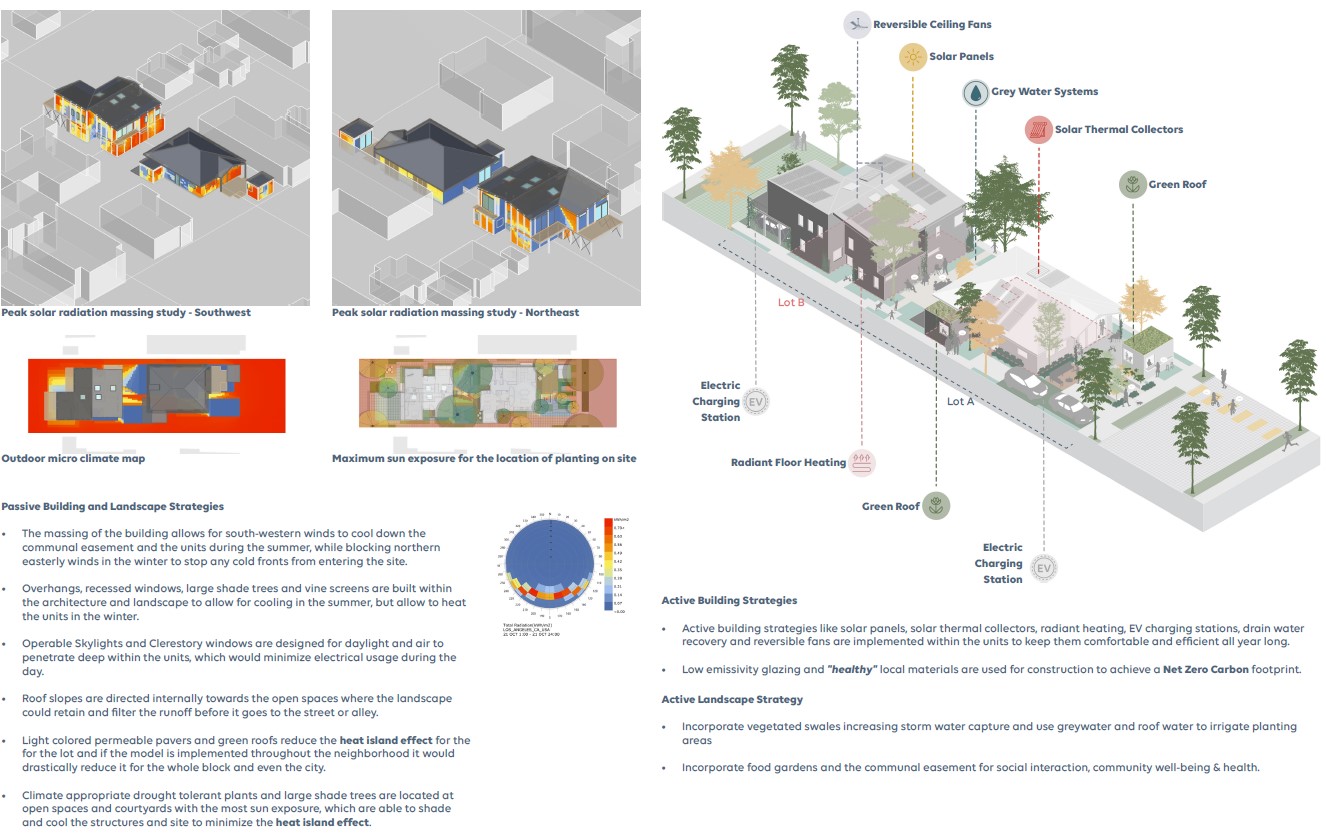
Densification requires that each parcel carry greater ecological
performance within reduced landscaped areas. The landscape
actively seeks to expand the tree canopy, furnish urban
agriculture opportunities for residents, and provide low-water
landscaping with stormwater gardens positioned to capture and
retain rainwater.
Passive and active building strategies are implemented to
create a Zero Net Building model for Los Angeles by harnessing
existing solar and wind patterns for resident comfort throughout
the year. The placement of the structures, overhangs, clerestory
windows, deciduous planting, and renewable energy sources
help to achieve carbon neutrality and status as a Zero Energy
Community.
Expansion of housing opportunities for Angelenos is grounded in economic, environmental and social issues, however the soul of housing embraces human centered design principles with the human experience at the forefront.
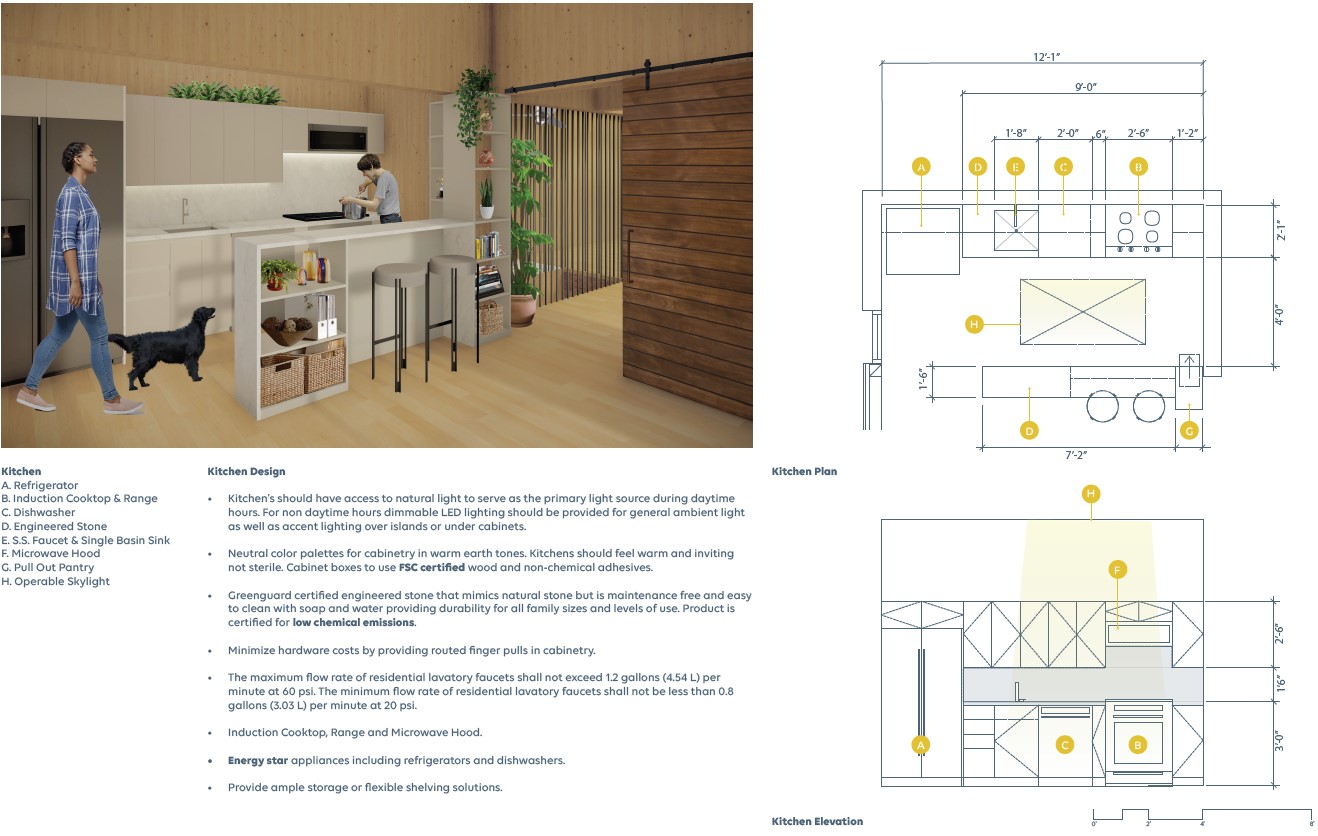
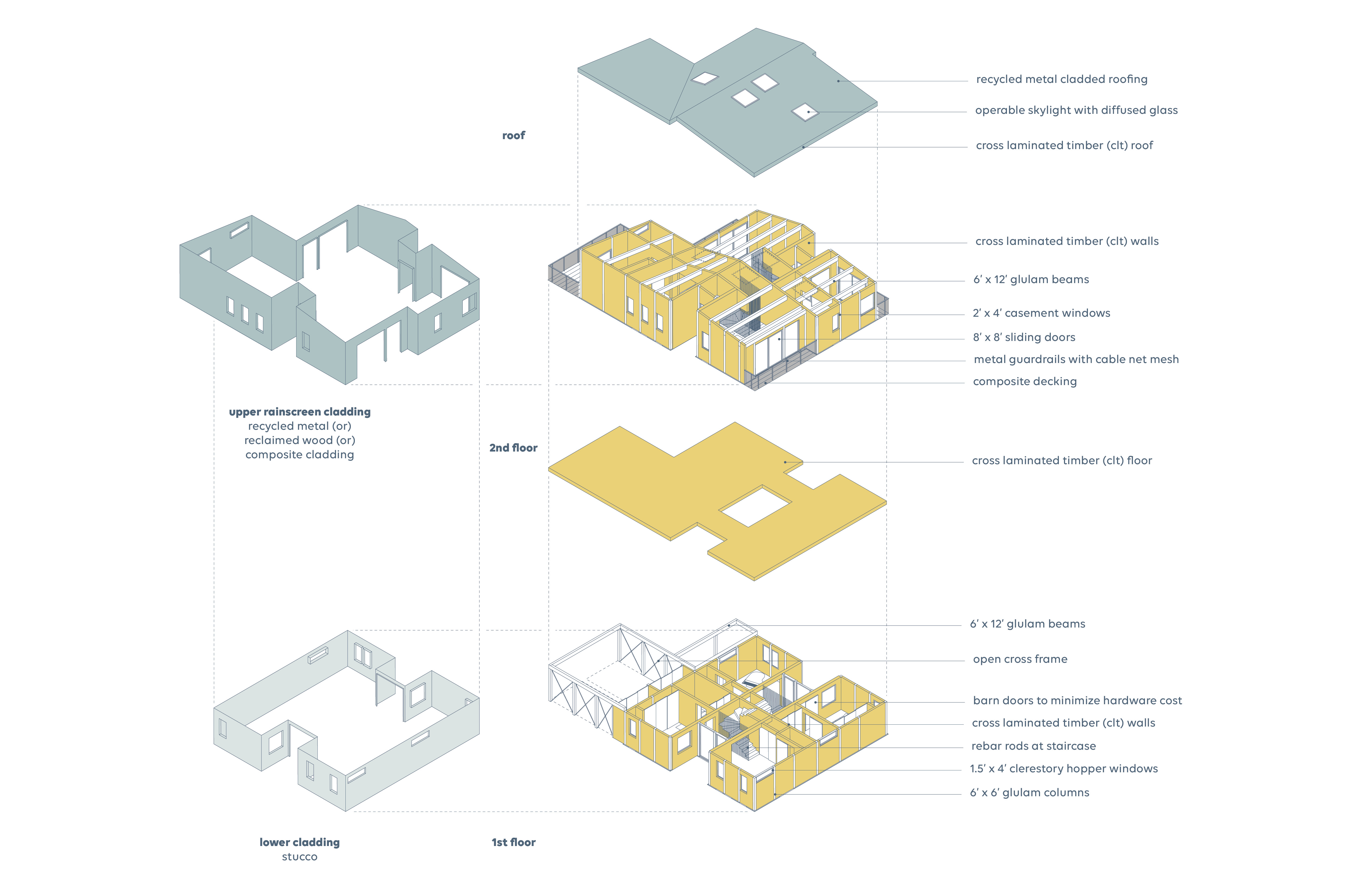 Building Components
Building Components
Cross Laminated Timber (CLT) has several distinct advantages including shorter
onsite construction times, reduced waste, and a low carbon footprint. By
systematizing the design and construction, the Community Land Trust could create
efficiencies across multiple sites.
Recycled metal cladding and roof shroud the upper floor of the New Duplex to help cool down the building in the summer and helps with fireproofing the structure during Southern California's fire seasons.
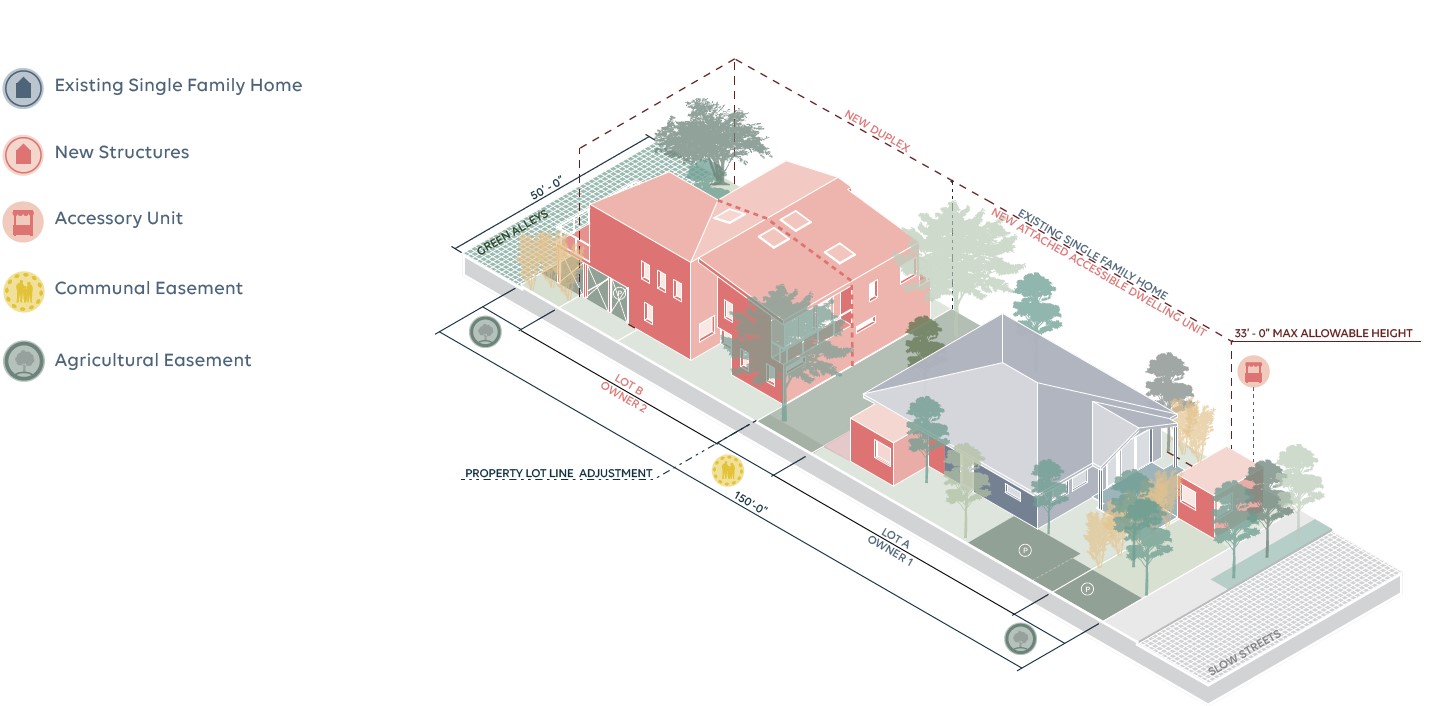
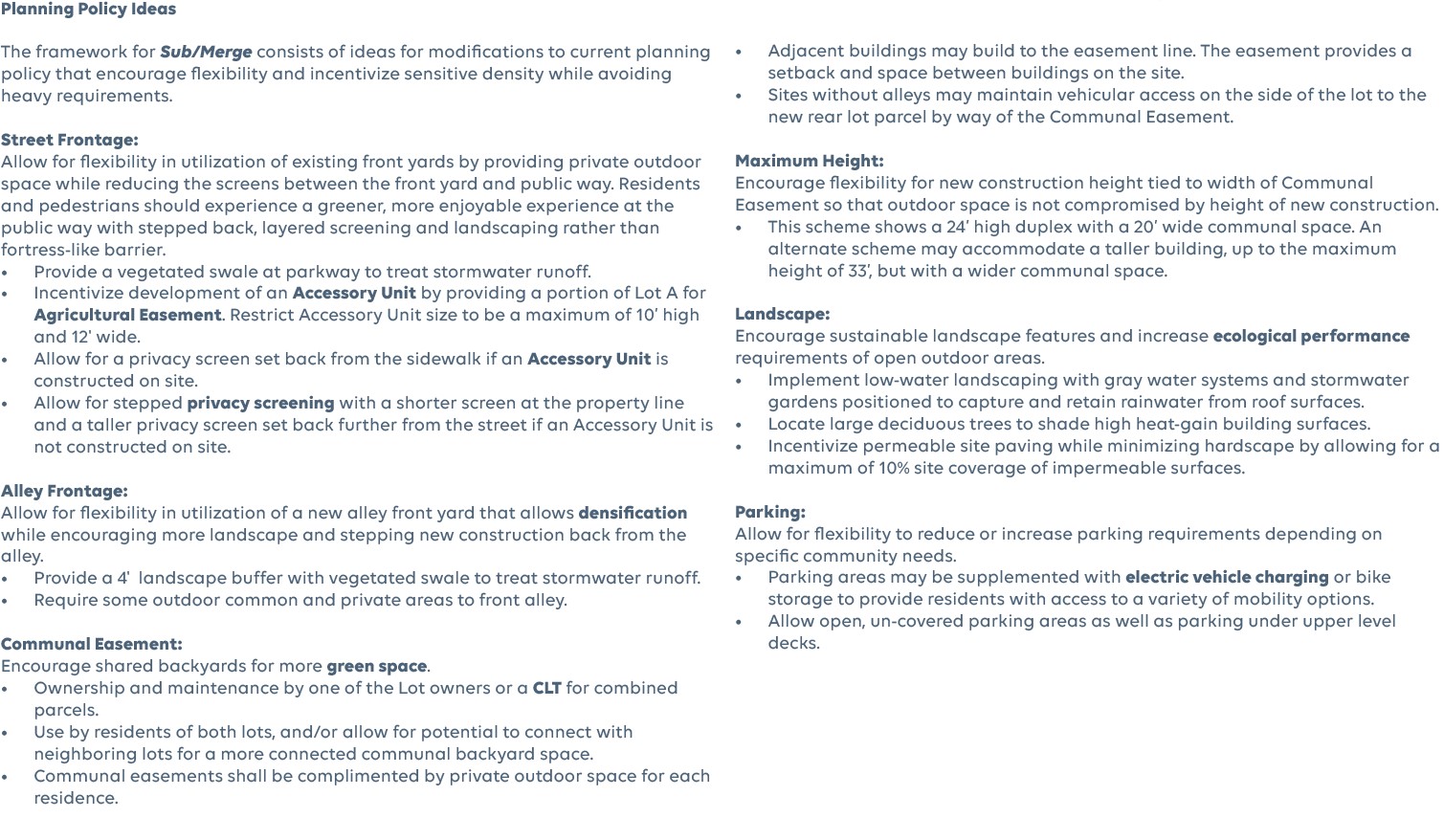
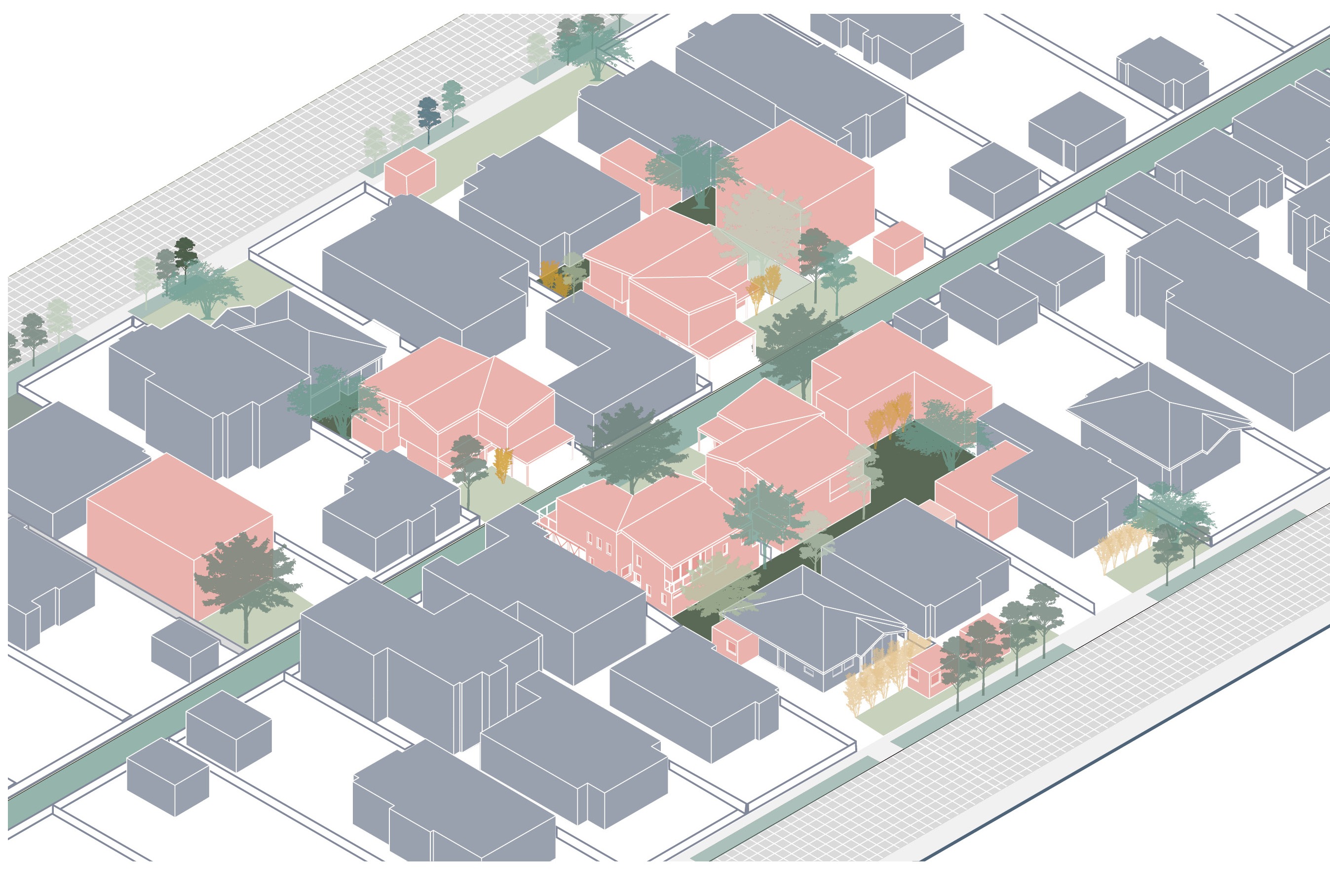
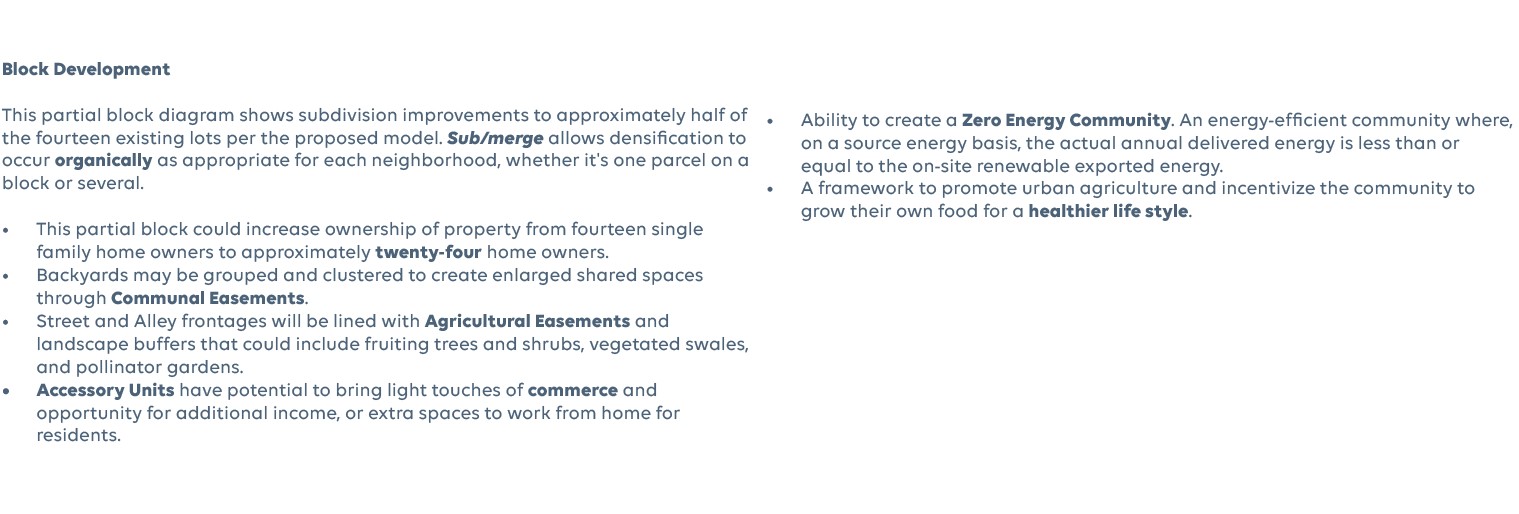
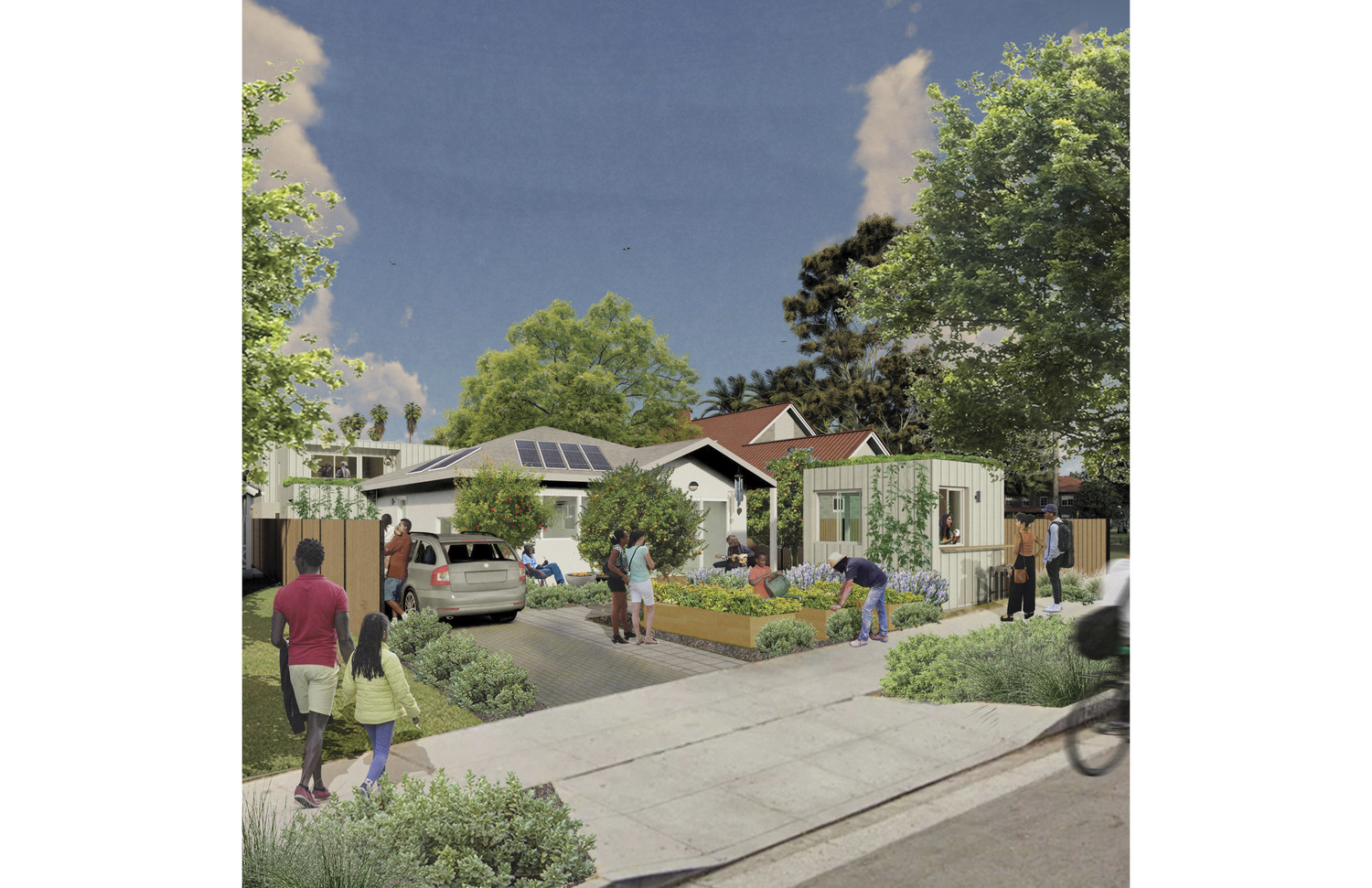
To view in full detail, download Sub/Merge here.
The Low Rise design challenge was organized by the Office of Los Angeles Mayor Eric Garcetti and the Chief Design Officer for the City of Los Angeles, Christopher Hawthorne. It received a total of 380 submissions from around the world, responding to a brief with four categories: Corners, Fourplex, (Re)Distribution, and Subdivision.
Omgivning was the only firm to place in two categories. Go here to read about our winning submission in the Fourplex category.
Details on the categories, as well as the community-engagement listening sessions that were required viewing for all entrants, can be found at www.lowrise.la.
